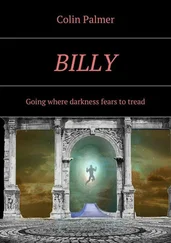E. Forster - Where Angels Fear to Tread
Здесь есть возможность читать онлайн «E. Forster - Where Angels Fear to Tread» весь текст электронной книги совершенно бесплатно (целиком полную версию без сокращений). В некоторых случаях можно слушать аудио, скачать через торрент в формате fb2 и присутствует краткое содержание. Жанр: Классическая проза, на английском языке. Описание произведения, (предисловие) а так же отзывы посетителей доступны на портале библиотеки ЛибКат.
- Название:Where Angels Fear to Tread
- Автор:
- Жанр:
- Год:неизвестен
- ISBN:нет данных
- Рейтинг книги:5 / 5. Голосов: 1
-
Избранное:Добавить в избранное
- Отзывы:
-
Ваша оценка:
- 100
- 1
- 2
- 3
- 4
- 5
Where Angels Fear to Tread: краткое содержание, описание и аннотация
Предлагаем к чтению аннотацию, описание, краткое содержание или предисловие (зависит от того, что написал сам автор книги «Where Angels Fear to Tread»). Если вы не нашли необходимую информацию о книге — напишите в комментариях, мы постараемся отыскать её.
Where Angels Fear to Tread — читать онлайн бесплатно полную книгу (весь текст) целиком
Ниже представлен текст книги, разбитый по страницам. Система сохранения места последней прочитанной страницы, позволяет с удобством читать онлайн бесплатно книгу «Where Angels Fear to Tread», без необходимости каждый раз заново искать на чём Вы остановились. Поставьте закладку, и сможете в любой момент перейти на страницу, на которой закончили чтение.
Интервал:
Закладка:
He had been to this theatre many years before, on the occasion of a performance of “La Zia di Carlo.” Since then it had been thoroughly done up, in the tints of the beet-root and the tomato, and was in many other ways a credit to the little town. The orchestra had been enlarged, some of the boxes had terra-cotta draperies, and over each box was now suspended an enormous tablet, neatly framed, bearing upon it the number of that box. There was also a drop-scene, representing a pink and purple landscape, wherein sported many a lady lightly clad, and two more ladies lay along the top of the proscenium to steady a large and pallid clock. So rich and so appalling was the effect, that Philip could scarcely suppress a cry. There is something majestic in the bad taste of Italy; it is not the bad taste of a country which knows no better; it has not the nervous vulgarity of England, or the blinded vulgarity of Germany. It observes beauty, and chooses to pass it by. But it attains to beauty's confidence. This tiny theatre of Monteriano spraddled and swaggered with the best of them, and these ladies with their clock would have nodded to the young men on the ceiling of the Sistine.
Philip had tried for a box, but all the best were taken: it was rather a grand performance, and he had to be content with stalls. Harriet was fretful and insular. Miss Abbott was pleasant, and insisted on praising everything: her only regret was that she had no pretty clothes with her.
“We do all right,” said Philip, amused at her unwonted vanity.
“Yes, I know; but pretty things pack as easily as ugly ones. We had no need to come to Italy like guys.”
This time he did not reply, “But we're here to rescue a baby.” For he saw a charming picture, as charming a picture as he had seen for years—the hot red theatre; outside the theatre, towers and dark gates and mediaeval walls; beyond the walls olive-trees in the starlight and white winding roads and fireflies and untroubled dust; and here in the middle of it all, Miss Abbott, wishing she had not come looking like a guy. She had made the right remark. Most undoubtedly she had made the right remark. This stiff suburban woman was unbending before the shrine.
“Don't you like it at all?” he asked her.
“Most awfully.” And by this bald interchange they convinced each other that Romance was here.
Harriet, meanwhile, had been coughing ominously at the drop-scene, which presently rose on the grounds of Ravenswood, and the chorus of Scotch retainers burst into cry. The audience accompanied with tappings and drummings, swaying in the melody like corn in the wind. Harriet, though she did not care for music, knew how to listen to it. She uttered an acid “Shish!”
“Shut it,” whispered her brother.
“We must make a stand from the beginning. They're talking.”
“It is tiresome,” murmured Miss Abbott; “but perhaps it isn't for us to interfere.”
Harriet shook her head and shished again. The people were quiet, not because it is wrong to talk during a chorus, but because it is natural to be civil to a visitor. For a little time she kept the whole house in order, and could smile at her brother complacently.
Her success annoyed him. He had grasped the principle of opera in Italy—it aims not at illusion but at entertainment—and he did not want this great evening-party to turn into a prayer-meeting. But soon the boxes began to fill, and Harriet's power was over. Families greeted each other across the auditorium. People in the pit hailed their brothers and sons in the chorus, and told them how well they were singing. When Lucia appeared by the fountain there was loud applause, and cries of “Welcome to Monteriano!”
“Ridiculous babies!” said Harriet, settling down in her stall.
“Why, it is the famous hot lady of the Apennines,” cried Philip; “the one who had never, never before—”
“Ugh! Don't. She will be very vulgar. And I'm sure it's even worse here than in the tunnel. I wish we'd never—”
Lucia began to sing, and there was a moment's silence. She was stout and ugly; but her voice was still beautiful, and as she sang the theatre murmured like a hive of happy bees. All through the coloratura she was accompanied by sighs, and its top note was drowned in a shout of universal joy.
So the opera proceeded. The singers drew inspiration from the audience, and the two great sextettes were rendered not unworthily. Miss Abbott fell into the spirit of the thing. She, too, chatted and laughed and applauded and encored, and rejoiced in the existence of beauty. As for Philip, he forgot himself as well as his mission. He was not even an enthusiastic visitor. For he had been in this place always. It was his home.
Harriet, like M. Bovary on a more famous occasion, was trying to follow the plot. Occasionally she nudged her companions, and asked them what had become of Walter Scott. She looked round grimly. The audience sounded drunk, and even Caroline, who never took a drop, was swaying oddly. Violent waves of excitement, all arising from very little, went sweeping round the theatre. The climax was reached in the mad scene. Lucia, clad in white, as befitted her malady, suddenly gathered up her streaming hair and bowed her acknowledgment to the audience. Then from the back of the stage—she feigned not to see it—there advanced a kind of bamboo clothes-horse, stuck all over with bouquets. It was very ugly, and most of the flowers in it were false. Lucia knew this, and so did the audience; and they all knew that the clothes-horse was a piece of stage property, brought in to make the performance go year after year. None the less did it unloose the great deeps. With a scream of amazement and joy she embraced the animal, pulled out one or two practicable blossoms, pressed them to her lips, and flung them into her admirers. They flung them back, with loud melodious cries, and a little boy in one of the stageboxes snatched up his sister's carnations and offered them. “Che carino!” exclaimed the singer. She darted at the little boy and kissed him. Now the noise became tremendous. “Silence! silence!” shouted many old gentlemen behind. “Let the divine creature continue!” But the young men in the adjacent box were imploring Lucia to extend her civility to them. She refused, with a humorous, expressive gesture. One of them hurled a bouquet at her. She spurned it with her foot. Then, encouraged by the roars of the audience, she picked it up and tossed it to them. Harriet was always unfortunate. The bouquet struck her full in the chest, and a little billet-doux fell out of it into her lap.
“Call this classical!” she cried, rising from her seat. “It's not even respectable! Philip! take me out at once.”
“Whose is it?” shouted her brother, holding up the bouquet in one hand and the billet-doux in the other. “Whose is it?”
The house exploded, and one of the boxes was violently agitated, as if some one was being hauled to the front. Harriet moved down the gangway, and compelled Miss Abbott to follow her. Philip, still laughing and calling “Whose is it?” brought up the rear. He was drunk with excitement. The heat, the fatigue, and the enjoyment had mounted into his head.
“To the left!” the people cried. “The innamorato is to the left.”
He deserted his ladies and plunged towards the box. A young man was flung stomach downwards across the balustrade. Philip handed him up the bouquet and the note. Then his own hands were seized affectionately. It all seemed quite natural.
“Why have you not written?” cried the young man. “Why do you take me by surprise?”
“Oh, I've written,” said Philip hilariously. “I left a note this afternoon.”
“Silence! silence!” cried the audience, who were beginning to have enough. “Let the divine creature continue.” Miss Abbott and Harriet had disappeared.
Читать дальшеИнтервал:
Закладка:
Похожие книги на «Where Angels Fear to Tread»
Представляем Вашему вниманию похожие книги на «Where Angels Fear to Tread» списком для выбора. Мы отобрали схожую по названию и смыслу литературу в надежде предоставить читателям больше вариантов отыскать новые, интересные, ещё непрочитанные произведения.
Обсуждение, отзывы о книге «Where Angels Fear to Tread» и просто собственные мнения читателей. Оставьте ваши комментарии, напишите, что Вы думаете о произведении, его смысле или главных героях. Укажите что конкретно понравилось, а что нет, и почему Вы так считаете.











